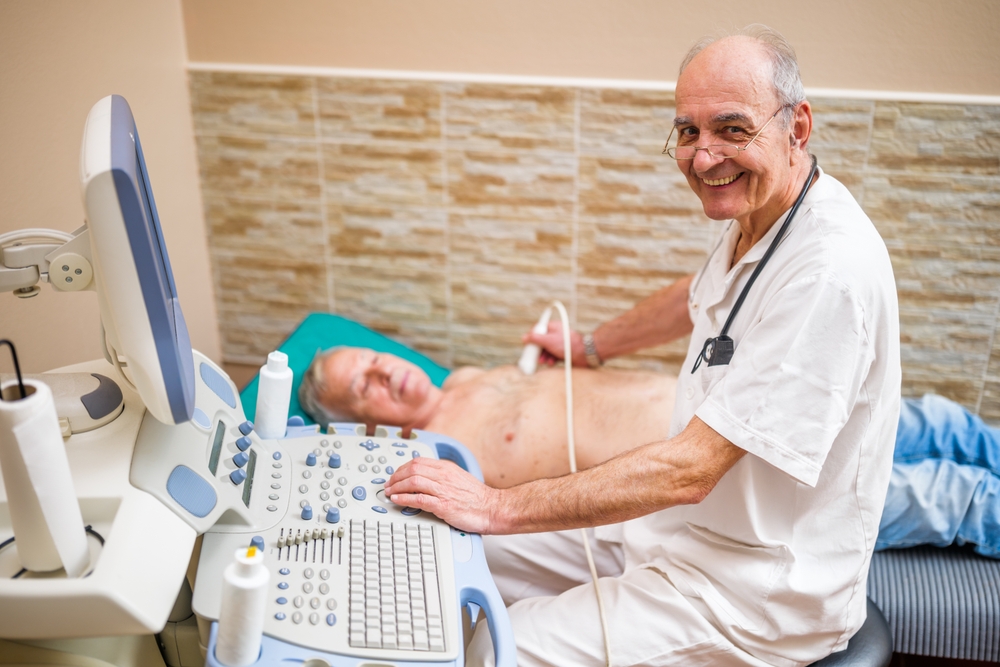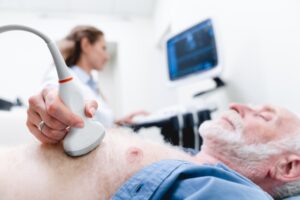If your doctor has recommended an echocardiogram, you might feel a bit uncertain about what to expect. This common and highly effective heart test provides a wealth of information about your cardiovascular health without being invasive. This article serves as a comprehensive guide on an echocardiogram, explaining what it is, why it’s done, and what the process involves. We want to give you everything about an echocardiogram so you can feel prepared and confident. This simple test is a key tool for doctors to see your heart in action and ensure it’s functioning as it should. Get a consultation with the best cardiologists in Brooklyn.
What Exactly Is an Echocardiogram?
An echocardiogram, often called an “echo,” is an ultrasound of the heart. It uses high-frequency sound waves to create live images of your heart chambers, valves, walls, and blood vessels. This non-invasive test allows a cardiologist to see your heart beating and pumping blood.
The test provides crucial information about:
- Heart Size and Shape: An echo can detect an enlarged heart or thickened heart walls.
- Pumping Strength: It measures how well your heart is pumping blood, a value known as the ejection fraction.
- Valve Function: The test can identify problems with the heart valves, such as leaking or narrowing.
- Structural Abnormalities: It can spot defects in the heart chambers, abnormal connections between the heart and major blood vessels, and other congenital heart issues.
- Blood Clots or Tumors: An echo can reveal potential blood clots within the heart’s chambers or tumors.
Because it provides such a detailed, real-time view, the echocardiogram is one of the most widely used diagnostic tools in cardiology.
A Comprehensive Guide on Echocardiogram Types
There are several types of echocardiograms, and your doctor will choose the one that best suits your specific needs. Each provides a different view or level of detail.
Transthoracic Echocardiogram (TTE)
This is the most common type of echocardiogram. A trained technician, called a sonographer, applies a gel to your chest and moves a small, handheld device called a transducer across the skin. The transducer sends sound waves to the heart and picks up the echoes that bounce back, which a computer then converts into images on a screen. The procedure is painless and usually takes less than an hour.
Transesophageal Echocardiogram (TEE)
For a more detailed look, a doctor might recommend a TEE. In this procedure, a flexible tube containing a small transducer is guided down your throat and into your esophagus (the tube connecting your mouth to your stomach). Because the esophagus is located directly behind the heart, the TEE can provide clearer, more detailed images than a standard TTE, as the sound waves don’t have to pass through skin, muscle, or bone. You will be given a sedative to help you relax during this test.
Stress Echocardiogram
A stress echo is performed to see how your heart functions under stress, such as during exercise. Images of your heart are taken at rest and then again immediately after you exercise on a treadmill or stationary bike. If you are unable to exercise, you may be given a medication that makes your heart beat faster and harder, simulating the effects of exercise. This test helps your cardiologist determine if your heart muscle is getting enough blood flow during physical activity.
Why Might You Need an Echocardiogram?
Your doctor might order an echocardiogram to investigate signs or symptoms that could indicate a heart problem, such as shortness of breath, chest pain, or an irregular heartbeat. It’s also used to diagnose and monitor various heart conditions, including:
- Damage from a heart attack
- Congenital heart defects
- Pericarditis (inflammation of the sac around the heart)
- Cardiomyopathy (disease of the heart muscle)
The results help your healthcare team make an accurate diagnosis and develop the most effective treatment plan for you.
Finding the Right Care
If you’ve been advised to get an echocardiogram, it’s important to have it performed at a facility with experienced professionals. For those in New York, finding a reputable cardiology clinic in Brooklyn ensures you receive high-quality care. The technicians and cardiologists at a specialized cardiology clinic in Brooklyn have the expertise to perform the test accurately and interpret the results correctly. After the test, you will follow up with your doctor to discuss what the images show and determine the next steps for your heart health.
An echocardiogram is a safe, painless, and powerful tool that provides vital insights into the health of your heart. By understanding what the test involves and why it’s performed, you can approach your appointment with confidence, knowing you are taking a proactive step toward managing your cardiovascular well-being. For any cardiovascular problems, call us on +1 718 367 2555. The Cardiologists at Doral Health & Wellness consistently have outstanding patient satisfaction ratings. If you need help, register your information at https://yuz88hfiyh7.typeform.com/Doralintake. The professionals at Doral Health & Wellness Cardiology Brooklyn can improve your health and quality of life because of their vast training and experience. New Yorkers can get the best cardiovascular care at Doral Health & Wellness Brooklyn. Visit us at 1797 Pitkin Avenue, Brooklyn, NY 11212.






